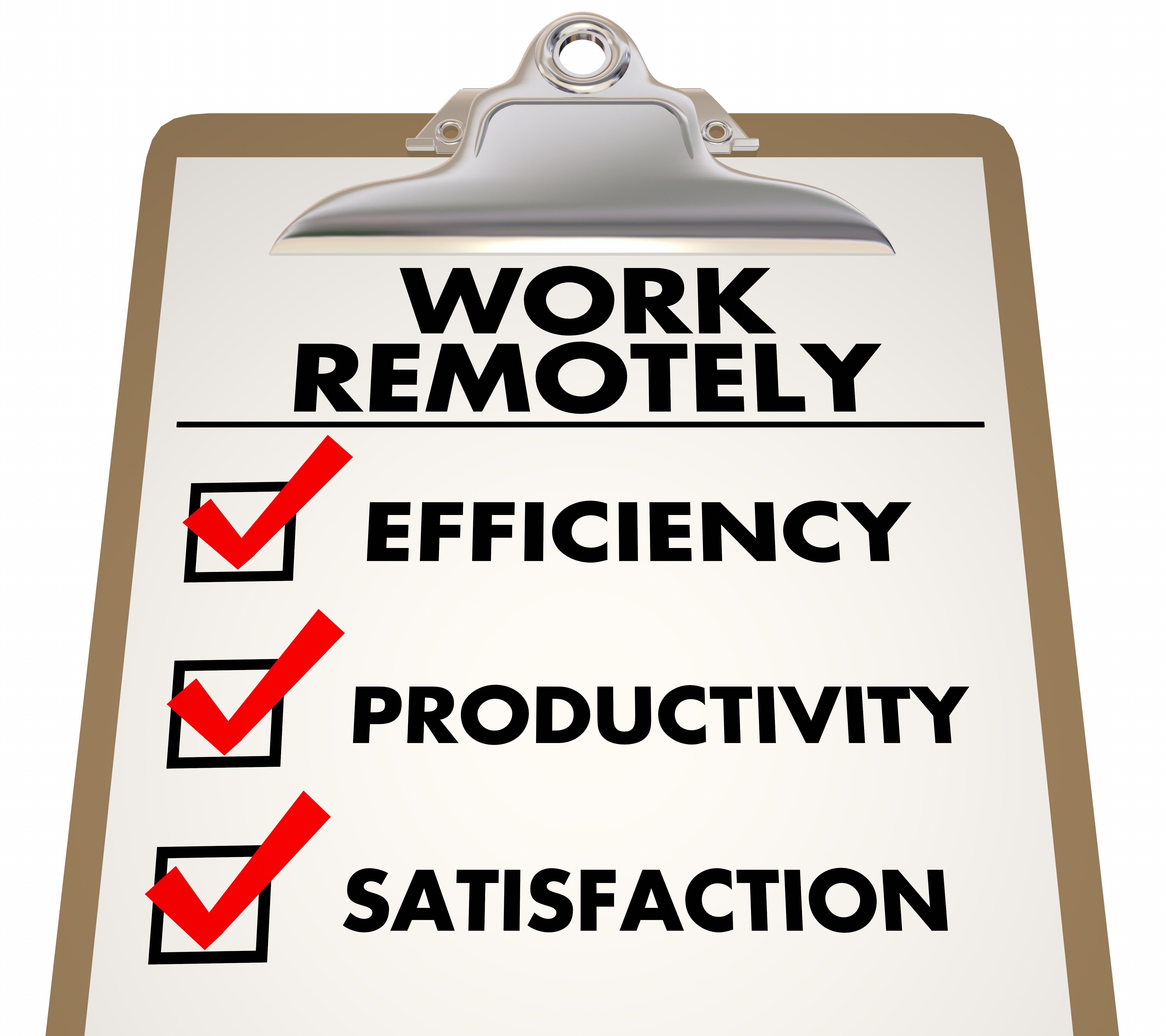Remote Work Policies

Creating a Remote Work Policy can be difficult however it just needs to be well thought out. Make sure the business has the infrastructure to do so. Technology plays a critical role in one’s success to work remotely. In most businesses, data and system security will need to be addressed and should be outlined in the policy. During the Coronavirus pandemic we saw companies quickly adapt to allow some employees to work from home temporarily.
As this pandemic continued, companies had to adjust their mindset from temporary to possibly a more permanent solution. Here are some tips for creating a remote policy.
Management: Keep in mind, most of your quality performers will continue to perform in a remote environment. It will be important for all employees to have detailed expectations, no different than working on-site. Regular check-ins should be scheduled.
Managing nonexempt or hourly employees can be tricky, even risky in a remote environment, however it can be done. Make sure you are current with state and federal laws as it pertains to Time and Attendance Management. This should be outlined in your Remote Work policy as well as your Time and Attendance Policy.
Job Analysis: Determine which positions can be performed remotely. Make sure these are well thought out justifiable explanations, especially if during the Coronavirus Pandemic you allowed employees to “work from home”. There could be backlash as employees can begin to claim they have done this job successful from their home.
Eligibility: Remember, this is a benefit, consider as such – when are employees granted benefits? You should clearly outline any requirements in this section such as tenure, classifications, jobs (after the analysis has been completed).
Business Hours: Remember if you run a business that is 8a to 5p, you probably want to state these terms within your policy. Remote employees are expected to be readily available during business hours / scheduled hours.
Communication: Are employees expected to return a communication (email, call, etc.) internally and externally and in what time span? Are there preferred methods of communication you expect? Make sure you outline these expectations clearly.
Productivity (how to measure): Businesses need to identify key measurables around productivity and communicate them accordingly.
Required Equipment / technology: Outline details of necessary equipment (ex: laptop) furniture (ex: desk), technology (software, security, programs), communication capabilities (phones, faxes, scanning) and office supplies (ex: paper). Be prepared to state what the business will cover, employees can expense, or shared responsibilities.
Expenses: An employee should be reimbursed for items necessary to perform their job duties. The employer can supply these items or determine what amount is appropriate for such items and how much one might need. Items used for an employee's convenience, unlimited internet, upgraded monitor, etc. can be considered “convenience items” and the employer would make a reasonable effort to determine what the appropriate amount to expense is. Some states have specific laws pertaining to expenses when telecommuting or remote work so make sure you consult with someone or know local laws.
When drafting a policy, think of the purpose, eligibility, the conditions and terms, expectations, and specific procedures if there are any.